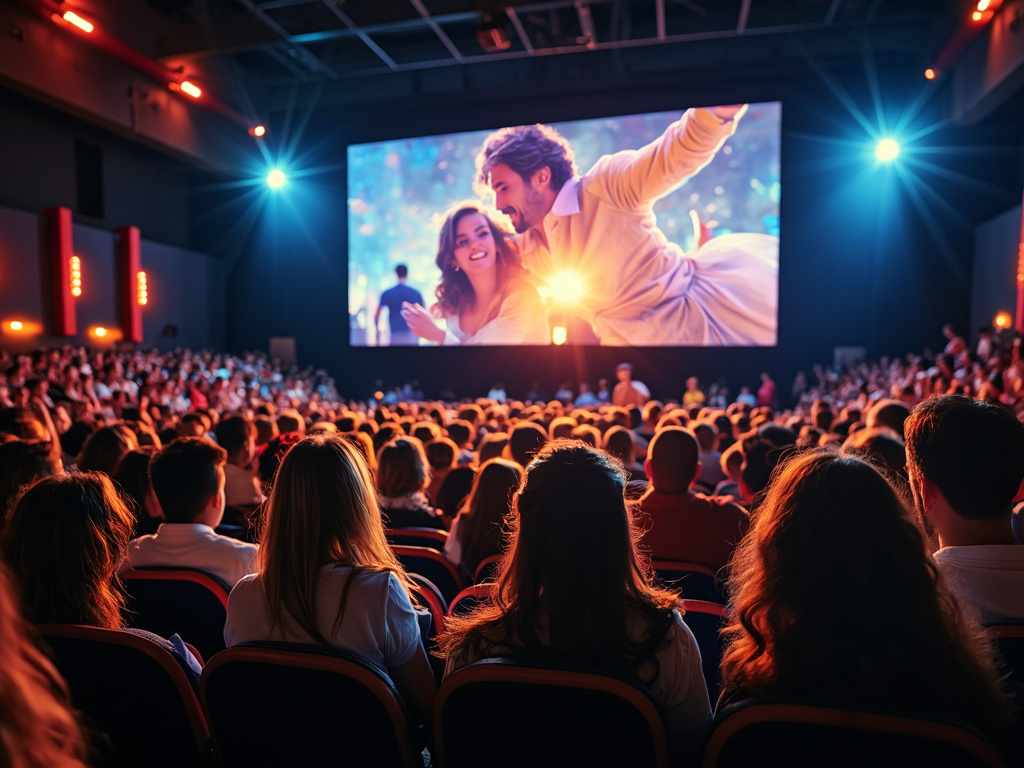Understanding the power of first impressions
In the world of cinema, the significance of first impressions cannot be overstated. Movie trailers serve as the initial touchpoint between a film and its potential audience, making it crucial for them to be crafted with precision. The psychology behind these brief glimpses into a film’s narrative is rooted in the human tendency to form quick judgments. Research indicates that viewers often decide whether they are interested in a film within the first few seconds of a trailer. This highlights the importance of engaging visuals and compelling storytelling techniques right from the start.
Moreover, the effectiveness of a trailer is often determined by its ability to resonate with the audience’s expectations and preferences. By showcasing key elements such as star power, genre-specific tropes, and unique selling points, trailers can create a strong initial connection. This connection is vital for audience engagement, as it encourages viewers to seek out the full film experience. For more insights on how trailers are made, check out our article on Behind the Scenes: How Trailers Are Made.
Emotional triggers in trailers
Emotional response plays a pivotal role in the effectiveness of movie trailers. Filmmakers strategically incorporate emotional triggers to elicit feelings such as joy, fear, or nostalgia, which can significantly influence a viewer’s desire to watch the film. By tapping into universal emotions, trailers can create a sense of relatability and connection, making the audience more likely to engage with the content. For instance, a trailer that evokes laughter or tears can leave a lasting impression, prompting viewers to share their experiences with others.
The use of storytelling techniques in trailers is also essential for crafting an emotional narrative. By presenting relatable characters and situations, trailers can draw viewers into the story, making them invested in the outcome. This emotional investment is crucial for driving ticket sales and generating buzz around a film. To explore more about how emotional storytelling impacts cinema, visit our Film Reviews: Analyzing the Best Cinematography of 2023 page.
The role of music and sound effects
Music and sound effects are integral components of movie trailers, serving to enhance the emotional landscape and create a more immersive experience. The psychology of sound suggests that certain musical cues can evoke specific feelings, making them a powerful tool for filmmakers. For example, a suspenseful score can heighten tension, while an uplifting melody can inspire hope and excitement. This auditory stimulation works in tandem with visual elements to create a cohesive narrative that captivates the audience.
Furthermore, sound effects can amplify the impact of key moments within a trailer. The strategic use of silence, crescendos, and sudden bursts of sound can create a sense of urgency and anticipation. This combination of music and sound effects not only enriches the storytelling but also reinforces the emotional response that trailers aim to elicit. To discover more about the art of crafting compelling narratives, check out our recommendations for a cozy night in at Movie Recommendations for a Cozy Night In.
Narrative structure in trailers
The narrative structure of a trailer is crucial in shaping audience perceptions and expectations. A well-structured trailer typically follows a three-act format, introducing the characters and setting, escalating the conflict, and culminating in a tantalising climax. This approach mirrors traditional storytelling techniques, allowing viewers to grasp the essence of the film without revealing too much. By carefully selecting which scenes to include, filmmakers can create a compelling narrative arc that piques interest and encourages viewers to seek out the full story.
Moreover, the pacing of a trailer is equally important. A rapid succession of clips can generate excitement and urgency, while slower moments can build tension and intrigue. This balance is essential for maintaining audience engagement, as it keeps viewers on the edge of their seats, eager to learn more. For those interested in exploring cult classics that have mastered this art, our list of Top 5 Cult Classics You Should Watch This Weekend is a must-read.
The science of anticipation
Anticipation is a powerful psychological phenomenon that plays a significant role in the effectiveness of movie trailers. By strategically revealing just enough information, trailers can create a sense of curiosity and excitement that compels viewers to watch the film. This anticipation is often heightened by clever marketing strategies, such as teaser trailers and countdowns, which build momentum leading up to a film’s release. The psychology behind this is rooted in the idea that the unknown can be more enticing than the known, making audiences eager to uncover the mysteries that lie within the film.
Additionally, the concept of social proof can amplify anticipation. When trailers generate buzz on social media or receive positive reviews from critics, they can create a ripple effect that encourages more viewers to engage with the content. This collective excitement can significantly impact box office performance, as audiences are more likely to attend a film that is already generating conversation. To stay updated on the latest trends and insights in the world of cinema, be sure to follow our blog at Moviehustlers.

